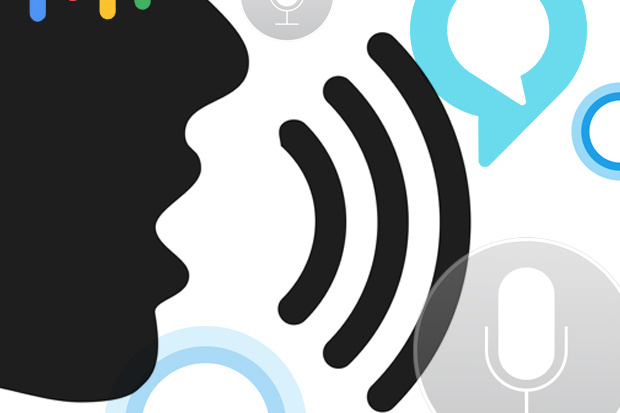Software development for Voice Assistance Continues to Advance Alongside AI Algorithms
Voice-assistance technology is a competitive industry with some major players having a high take in it. Google has Assistant, Amazon has Alexa, Apple has Siri and Microsoft has Cortana.
Despite big tech having a foothold on the major services available for consumers as well as smart speakers to go along with this tech, there is room for startups to enter this field. IT outsource services are a great way to go as software developers can make use of various voice recognition advancements available and create compelling software for niche market segments.
Consumer Giants Paving the Way with Voice Bots
Most companies today focus on consumers rather than business users with their assistance service software. This is due to them targeting smart speaker users for the most part and not just the individual applications users run.

Microsoft has recently Downgraded Cortana from an all-encompassing voice assistant to a standalone app focusing just on mostly Windows 10 search. Cortana was taken off various Microsoft platforms like Xbox in favor of being a complementary voice assistant service to others on the market. It still will exist going forward, but have less of an all-encompassing nature while focusing on search or particular tasks.
This move seems to have caught many users off guard. It also occurred despite Cortana showing early potential, having a large user base of Microsoft users and focusing on assistance rather than simply consumer-focused and hands-free navigation.
Cortana’s relevance shift shows how competitive the industry is to get into and how difficult it can be for companies to remain competitive in the long run. Microsoft would rather focus on other services and products and let companies like Google invest resources in improving voice recognition software.
Voice Recognition AI Advancements Pace Way for Future of Voice Tech
Voice and speech recognition are tied to machine learning and its algorithms. These technologies are paving the way for advancements related to speech recognition and the ability for a voice bot to decipher or comprehend human speech and sound efficiently.
As algorithms are able to interpret voices, accents and different ways people ask a single question and answer not just correctly but in various nuanced ways for more specific information, the easier it will be to entice users to software that takes advantage of voice technologies. Think about all of the ways someone can ask a single question. It is no easy feat for even humans to sometimes understand what is being asked without having the ability to say, “come again?” or “can you repeat that please?”
Users expect technology to be seamless and instantly do what is expected without fail or bugs of any sort. They do not want to repeat their answers or have to lower their voice and tone to have a voice bot interpret their questions correctly.
“What’s kept speech recognition from becoming a dominant form of computing is its unreliability,” according to INC. ”Regional accents and speech impediments can throw off word recognition platforms, and background noise can be difficult to penetrate.”
Today’s Youngest Tech Users Will Grow Up with Voice Bots
This is really a field where the youth of today will be growing up hands-free. Things like radio, music, even typing by dictation will be the norm of tomorrow.
The money is definitely there for the taking and making investments now in voice technologies can mean big returns for the future as more users get comfortable using voice and its recognition algorithms mature.
There Are Various Examples of Voice Tech Advancements in Software
Smaller companies and startups also have some interesting ideas in this field worth considering. There are even some solutions available that are open source. However, it is also possible to take advantage of what other big players are doing with the technology currently with services that stand out on their own or target specific interface tools or users.
An example of this is text to speech. This is something Google has been working on and specifically allows other developers to take advantage of. The company has a cloud-powered speech synthesis service available called Google Cloud Text to Speech and you can get a sense of what it does here.
Google (Now) and Apple (Siri) seem to be the furthest ahead when it comes to voice technology powered by AI algorithms. However, this is a dynamic field and there are many different ways to use voice in software to aid users. Many ideas are being tested and as technology advances so will the implementations of it.
The Mountain View-based giant also has speech translation services available taking advantage of these algorithms and speech recognition software it has been developing. There are some rival companies and startups with their own versions of speech translation available, such as iTranslate, but it is difficult for them to compete with Google’s resources, engineers and market power.
All of these different voice technologies are the result of advances in AI algorithms alongside efficient software development and big data analytics. The latter includes large sets of voice and speech data that vary by person, geographics, language and many other nuances. The key to advancing speech recognition is collecting data on users and their habits and be able to use this data effectively. When it comes to machine learning, voice bots are at a stage where they should be improving the longer they are used and be able to tailor their voice recognition abilities to their users over time.
Read Full Article Here - Software development for Voice Assistance Continues to Advance Alongside AI Algorithms
from TechGYD.COM https://ift.tt/2LngFeI
Labels: TechGYD.COM
0 Comments:
Post a Comment
Subscribe to Post Comments [Atom]
<< Home